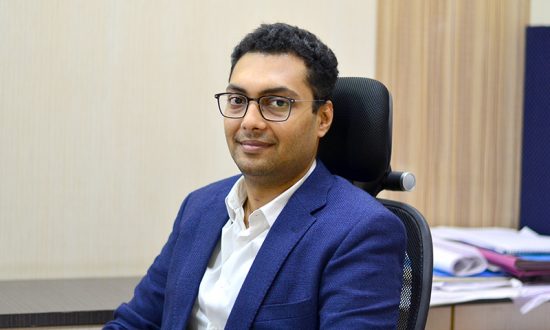A true education enthusiast, Shashank Goenka is the Managing Director at Goenka Global Education. He has always had a keen interest in business and education, as his family played a pivotal role in revolutionizing the education sector of the nation. Goenka Global Education has created a strong foundation over the last fifteen years, which played an integral role in Shashank’s professional life. He is well equipped with a strong entrepreneurial spirit. Therefore, he chose to lend his business acumen to the advancement of the Indian education sector.
Finland’s Education system truly believes that every student has the potential to create an impact in this world. Therefore, the curriculum is designed in a way to empower students to become the best version of them. The traditional rote-based learning, which largely focused on memorizing the course content and attempting for examinations, has been replaced by the ‘application-based’ learning solution, wherein ‘learning by experience’ is encouraged for the growth and development of students.
Finland’s education system is popularly known as the best education system in the world. The curriculum largely focuses on ‘application-based learning’, rather than the traditional ‘memory-based’ Rote learning. The education system focuses on development of each student on the educational and holistic front. The Finnish curriculum highlights the importance of ‘study with play’ with the idea of helping each student develop a healthy relationship with education. The Finnish education is known to implement the recent research and findings to enhance the quality of education for the students.
The Finnish Curriculum largely focuses on learning the basic skills through play and developing the character of the student in the early years. Their strategy includes teaching students to cope with change, communication and collaboration through games and other activities. With such initiatives, the concept of memorizing study material has been removed, as the key is to enhance the creative and analytical thinking ability of the students. Moreover, they focus on making the learning experience enjoyable, which positively adds value in the lives of each student.
Students are encouraged to follow their personalized learning path through a dynamic system, which encourages their strengths and supports their challenges. Learning is personalized for each student as they are all considered unique in their own way. Students are empowered by allowing them to carve their own way and explore their areas of interest in the most efficient and productive manner. Students are not burdened with homework or other outside work as most of the curriculum is covered during school hours in a productive manner. The time away from school is utilized in enhancing the skills and interest areas to improve the overall performance of the students.
Rote learning primarily focuses on completion of syllabus, learning through texts and appearing the exams to deliver good results. However, there is a huge gap in this process as students are unable to develop the ability to think. The Finnish curriculum has effectively bridged this gap by allowing students to develop their observation skills, build their individual viewpoints about a particular topic, come up with different perspectives and learn to draw their own guided conclusions. These will ensure students develop a broader outlook on things and develop multi-disciplinary career goals.
Finland’s Education System is ranked number one in all PISA (OECD’s Program for International Student Assessment) rankings. The reason is their goal – ‘Let kids be kids, empower them to explore their natural creativity.’ Finnish teachers are highly trained, wherein they are required to obtain a mandatory master’s degree. Teachers have the autonomy to plan their own teaching and resourcing. The biggest difference from rote learning is the process – teachers are allowed to design individual courses and modules for the different types of learners.
The grading system in Finnish curriculum revolves around the individual performance of the students. Each student is graded based on their individual progress and learning abilities. The curriculum has no mandated standardized tests, apart from the one exam at the end of students’ senior year in high school. There are no rankings, no comparisons or competition between students, schools or regions. This ensures that students are graded based on their unique path and individual capabilities.
With such progressive education system, the Finnish curriculum is a complete revolution in the way students are raised. The methods, ideologies and processes are indeed an inspirational on the global scale. Countries should take inspiration and closely follow the Finland Education reforms, to provide the best quality education to evolve the new generation.




